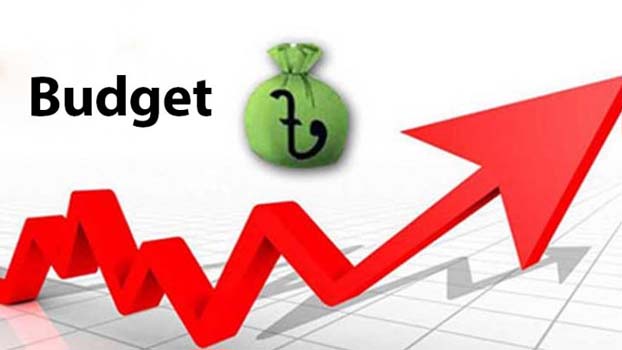BUDGET 2020-21
Big outlay to fight corona crisis

The government has planned to place a bigger budget to face the ongoing and post Covid-19 pandemic situation.
Leading economists said that the government has to endure extra pressure to fight against coronavirus crisis as it intends to widen budget deficits in the next budget.
They said the Covid-19 pandemic has widened the country's economic crisis.
The country has already witnessed down trend in economic growth as investment, export-import activities have been declining steeply, they mentioned.
On the other hand, revenue earnings will also decline naturally if people's income and expenditure decrease, they added.
Concerned about Covid-19 crisis, the government is planning to place the national budget to the tune of Tk560,000 crore for the fiscal year 2020-2021 with Tk 3,95,000 crore revenue collection target.
However, the budget deficit is projected to be Tk1,80,000 crore, which is 5.7 percent of the GDP that is going to cross the 5 percent benchmark after a decade.
The government has primarily set Tk 70,000 crore borrowing target from banks, Tk 72,000 crore from foreign sources and the remaining from savings.
Of the Tk523,190 crore national budget for the current fiscal year, the overall budget deficit was Tk145,380 crore, which is 5 percent of the GDP.
The World Bank former lead economist Dr Zahid Hussain said, “To meet the budget deficit, the government may heavily rely on bank borrowing and loan from various domestic sources. But the government should be careful about an approach in deficit financing to maintain fiscal discipline and avert risk.”
Eminent economist and former Bangladesh Bank governor Dr Salehuddin Ahmed said, “Bank’s deposit has declined. The banks have also implemented the government-announced incentive packages. Hence, the government will not be able to borrow too much from the banks to meet the budget deficit in the next fiscal year.”
“Hence, the government must be careful about its spending,” he added.
Executive Director of the Policy Research Institute Ahsan H Mansur said the country’s economy has witnessed downturn caused by the Covid-19 pandemic, which will create serious problem in the next fiscal year.
On the other hand, the country’s investments, export earnings and remittance inflows will decline, he said adding that, as a result, there is less opportunity to increase revenue collection in next budget.
In such a situation, it is not possible to collect so much revenue without radical reforms in the revenue sector, he informed.
This reform cannot be done in one day, he said adding that, “The government should take short- and long-term reforms policies from the next financial year. Firstly, automation should be introduced.”
This will help reduce corruption and irregularities, he mentioned.Mansur said tax offices should be spread in the field-level.
In addition, the rule of law must be established to prevent tax evasion, he said adding that, the existing laws need to be updated quickly.
On the other hand, the government will not be able to cover the deficit with loans from commercial banks as the banks has implemented the government stimulus packages, he mentioned
Hence, the government has to manage funds by increasing foreign loans, print money and taking loans from the central bank, he opined.




